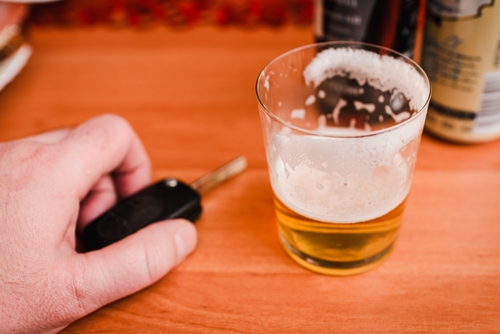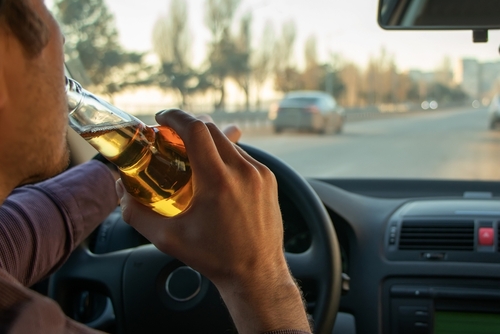Overview of South Carolina’s DUI Laws and BAC Limits
In South Carolina, driving under the influence (DUI) is a serious offense. The state has strict laws that define DUI and establish penalties based on blood alcohol concentration (BAC) levels. Understanding these laws is crucial for anyone facing DUI charges and DUI license suspension in Greenville.
Blood Alcohol Concentration (BAC) Limits
South Carolina sets specific BAC limits to determine impairment. For most drivers, the legal limit is 0.08%. However, for commercial drivers, the limit is lower at 0.04%. Drivers under 21 years old face a zero-tolerance policy, meaning any detectable BAC can lead to DUI charges.
Types of DUI Offenses
South Carolina categorizes DUI offenses into several types based on BAC levels and prior convictions:
- First Offense: A first DUI offense with a BAC of 0.08% to 0.10% may result in fines, license suspension, and possible jail time.
- Second Offense: A second DUI within ten years carries harsher penalties, including longer license suspension and increased fines.
- Third Offense: A third DUI is treated as a felony, leading to severe penalties, including extended jail time and permanent license revocation.
Implied Consent Law
South Carolina operates under an implied consent law. This means that by driving in the state, you automatically consent to chemical testing if stopped on suspicion of DUI. Refusing to take a breathalyzer or blood test can result in automatic license suspension for at least six months, regardless of the outcome of any DUI charges.
Understanding the Legal Process
If arrested for DUI, it is vital to understand the legal process. You will receive a notice of suspension, which allows you to request an administrative hearing. This hearing can provide an opportunity to challenge the suspension and potentially retain your driving privileges.
By understanding South Carolina’s DUI laws and BAC limits, you can better navigate the legal challenges ahead. Seeking legal counsel from an experienced DUI attorney can help you address the charges effectively and protect your driving rights.
License Suspension Periods for Different DUI Offenses
Understanding license suspension periods is crucial for anyone facing DUI charges in Greenville, SC. The length of the suspension varies based on the number of offenses and the blood alcohol concentration (BAC) level at the time of arrest. Here’s a breakdown of the license suspension periods for different DUI offenses.
First DUI Offense
For a first DUI offense in South Carolina, the license suspension lasts for six months. If your BAC is below 0.10%, you may be eligible for a temporary alcohol license after serving a portion of the suspension. However, if your BAC is 0.10% or higher, you will face the full six-month suspension without the option for a temporary license.
Second DUI Offense
If you are charged with a second DUI offense within ten years, the license suspension period increases to one year. This suspension applies regardless of your BAC level. A second offense also carries additional penalties, including mandatory participation in an alcohol and drug safety action program.
Third DUI Offense
A third DUI offense results in a license suspension of two years. This applies if the third offense occurs within ten years of the previous convictions. The penalties become more severe with each subsequent offense, emphasizing the importance of understanding the DUI laws in South Carolina.
Fourth or Subsequent DUI Offense
For a fourth or subsequent DUI offense, you may face permanent license revocation. This means you will lose your driving privileges indefinitely. Reinstatement of your license is not guaranteed and often requires a lengthy legal process.
Summary of License Suspension Periods
- First Offense: 6 months (BAC < 0.10% may qualify for a temporary license)
- Second Offense: 1 year (no temporary license available)
- Third Offense: 2 years (no temporary license available)
- Fourth Offense: Permanent revocation (license reinstatement is not guaranteed)
It is essential to understand these license suspension periods to navigate the legal process effectively. Seeking legal counsel from an experienced DUI attorney can help you explore your options and work towards minimizing the impact of a DUI charge on your driving privileges.
Increased Penalties for Repeat Offenders
In South Carolina, repeat DUI offenders face stricter penalties compared to first-time offenders. The severity of the consequences increases with each subsequent DUI conviction, impacting driving privileges and overall legal outcomes.
Second DUI Offense
A second DUI offense within ten years results in harsher penalties. The driver may face a minimum jail sentence of five days, with a maximum of one year. Additionally, the court may impose a fine ranging from $2,100 to $5,100. A second offense also leads to a mandatory six-month license suspension.
Third DUI Offense
The consequences for a third DUI offense are even more severe. A third conviction can lead to a minimum of 60 days in jail, with the possibility of up to three years. Fines range from $3,800 to $6,300. Furthermore, the driver will face a one-year license suspension, making it crucial to understand the implications of repeated offenses.
Fourth or Subsequent DUI Offense
A fourth or subsequent DUI offense is classified as a felony in South Carolina. The penalties include a minimum of one year in prison, with a maximum sentence of up to five years. Fines can reach as high as $10,000. Additionally, the offender will face permanent license revocation, severely impacting their ability to drive legally.
Long-term Consequences of a DUI Conviction on Driving Privileges
A DUI conviction in South Carolina can have significant long-term consequences on your driving privileges. Understanding these implications is crucial for anyone facing DUI charges in Greenville.
License Suspension
After a DUI conviction, you will face an automatic license suspension. The length of the suspension depends on the number of offenses and your blood alcohol concentration (BAC) level. For a first DUI offense, the suspension can last from six months to one year. If you have previous DUI convictions, the suspension period increases significantly. A third DUI offense may lead to a permanent license revocation.
Ignition Interlock Device Requirement
In many cases, the court may require you to install an ignition interlock device (IID) in your vehicle after a DUI conviction. This device prevents your car from starting if it detects alcohol on your breath. The IID requirement can last for several months or even years, depending on the severity of your offense. This adds another layer of restriction to your driving privileges.
Higher Insurance Rates
A DUI conviction can lead to higher car insurance rates. Insurance companies view DUI offenders as high-risk drivers, which often results in increased premiums. You may also face difficulties finding affordable insurance coverage. This financial burden can last for several years, impacting your overall driving experience.
Employment Challenges
Having a DUI on your record can affect your job prospects, especially if your job requires driving. Employers may view a DUI conviction as a red flag, potentially limiting your career opportunities. This can lead to long-term financial consequences and affect your ability to maintain stable employment.
Impact on Travel
A DUI conviction can also complicate your travel plans. Some countries may deny entry to individuals with a DUI on their record. This can limit your ability to travel internationally and may require additional steps to obtain travel permits.
Understanding the long-term consequences of a DUI conviction on your driving privileges is essential. Seeking legal counsel can help you navigate these challenges and work towards minimizing the impact on your life.








